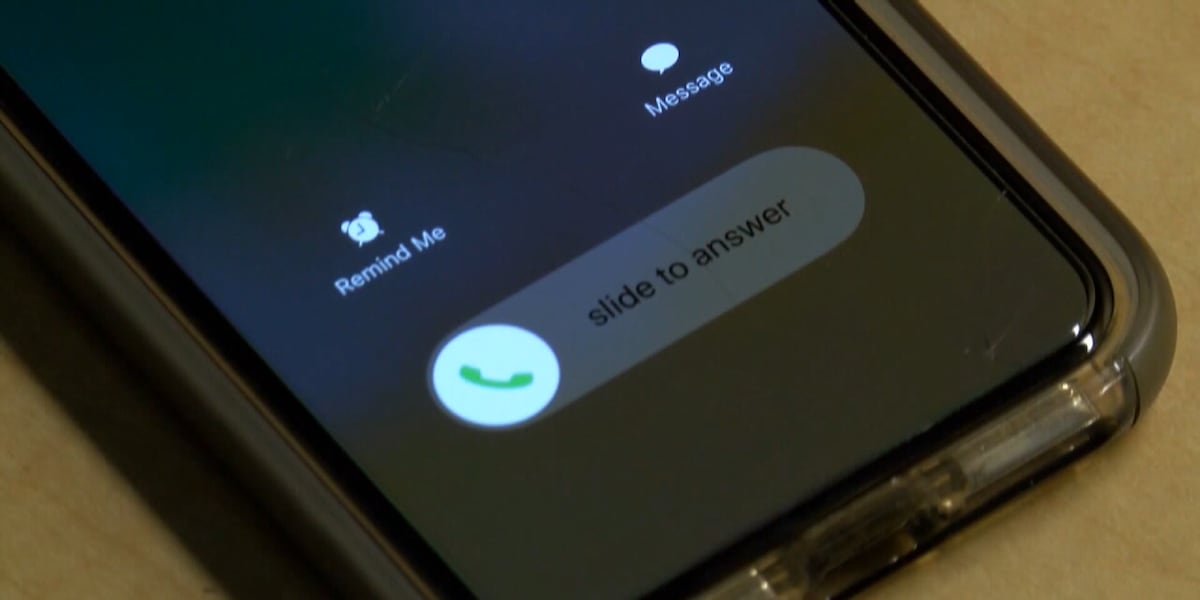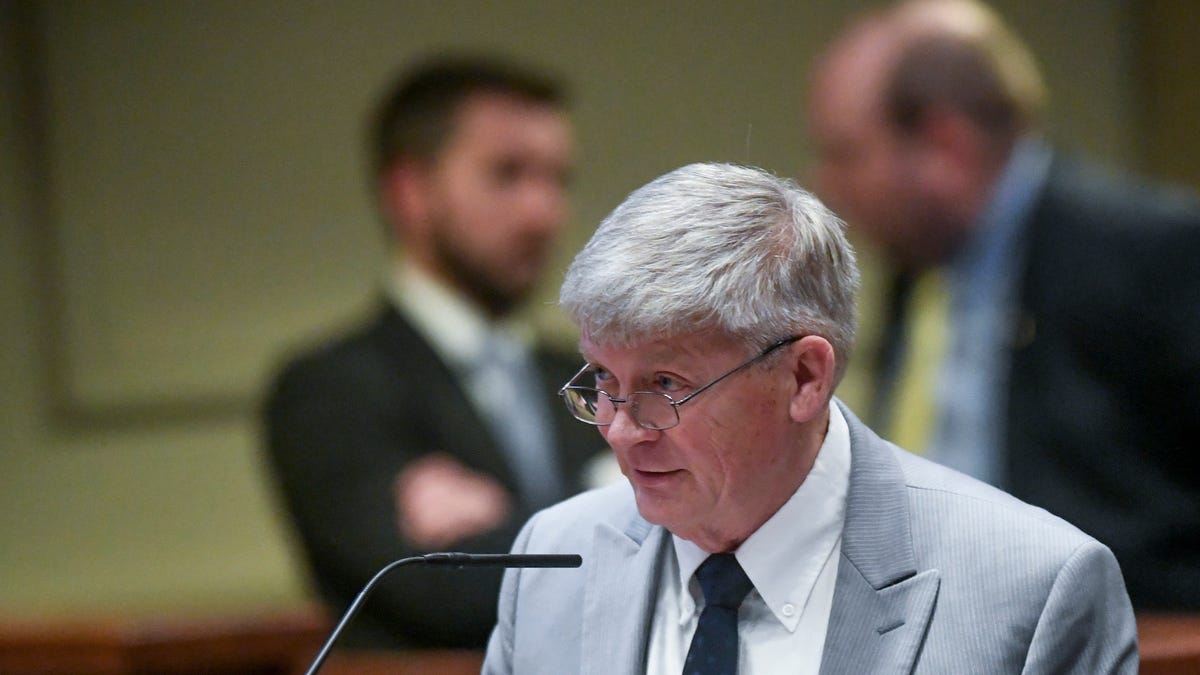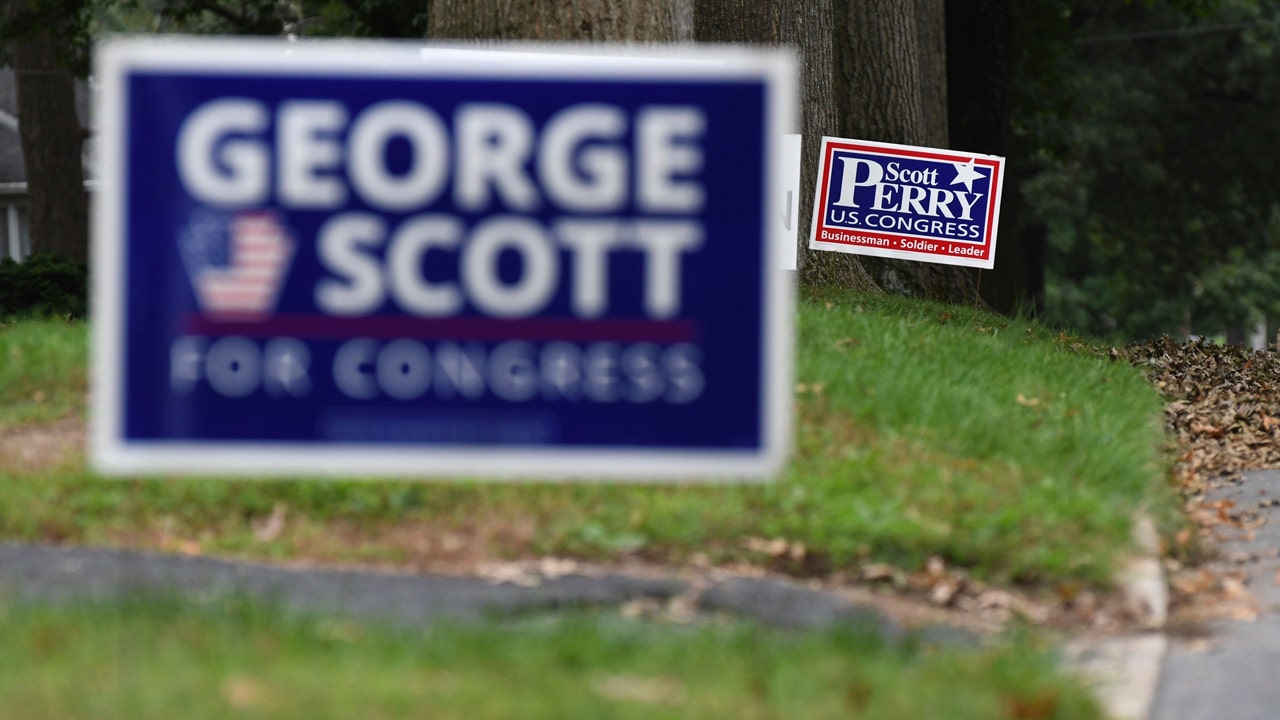Alabama
Biden's ballot access in Ohio and Alabama is in the hands of Republican election chiefs, lawmakers

COLUMBUS, Ohio – Democratic President Joe Biden’s reelection campaign is wrangling with Republican-dominated state governments in Ohio and Alabama to assure he is listed on their fall ballots, as once-mundane procedural negotiations get caught up in the nation’s fractious politics.
Both states, which control a combined 26 electoral votes, have deadlines for appearing on the ballot that precede the Democratic National Convention from Aug. 19 to Aug. 22 in Chicago. Lawyers for Biden’s campaign have asked their secretaries of state to accept provisional certifications before the cutoff, which would then be updated once Biden is formally nominated.
That’s where things have gotten sticky.
Alabama Secretary of State Wes Allen told The Associated Press that he will not accept a provisional certification because he does not have legal authority to do so. Allen said he sent a letter to the Alabama Democratic Party notifying them of the date problem as a “heads up” so they could address the issue.
“I’m not denying anybody. I’m just telling them what the law is,” Allen said. “I took an oath to uphold Alabama law and that’s what I’m going to do.”
The state’s Democratic Party chair, Randy Kelley, accused Allen of “partisan gamesmanship,” pointing out that Alabama has made adjustments to accommodate late Republican conventions in the past.
Ohio’s Republican Secretary of State Frank LaRose sent a similar letter to the Ohio Democratic Party last week. The letter suggested the party needed either to reschedule its convention or obtain a legislative fix by May 9 to get Biden on the Nov. 5 ballot.
The notion of striking a presidential candidate from a ballot began with a legal campaign last year to remove former President Donald Trump from various state ballots by citing a rarely-used clause of the U.S. Constitution’s 14th Amendment prohibiting those who “engaged in insurrection” from holding office. After Democratic-dominated states including Colorado and Maine did so, Republicans warned they could counter by barring Biden from ballots in red states if the Supreme Court didn’t reverse the actions.
The high court did just that last month, ruling that individual states can’t bar a candidate running for national office under the constitutional provision. But Alabama and Ohio have proceeded anyway, citing the technical conflicts between Biden’s official nomination and their own ballot deadlines.
Biden’s campaign argues there is precedent in Alabama for accepting provisional certification, including when Republicans faced the same issue in 2020. In that year, the state both accepted a provisional certification for Trump and passed legislation containing a one-time deadline change. Democratic lawyers argue it was the provisional certification, and not the legislation, that allowed Trump onto the ballot.
Regardless, Allen’s Republican predecessor as secretary of state, John Merrill, said Alabama worked it out for Trump and “absolutely the state should do the same” for Biden.
“Everybody deserves the chance to vote for the major party nominees. That’s why it’s important for the state to do whatever is necessary to make sure that everybody in the state is properly represented,” he said.
Republicans also submitted provisional certifications for Trump in Montana, Oklahoma and Washington in 2020, as did Democrats for Biden in those three states. On Thursday, the state of Washington agreed to accept a provisional certification for Biden to meet its pre-convention deadline. Oklahoma’s deadline also falls before the convention this year, but a spokesman said its law already anticipates such occasions by allowing for provisional certifications.
Since Ohio changed its certification deadline from 60 to 90 days ahead of the general election, state lawmakers have had to adjust it twice — in 2012 and 2020 — to accommodate candidates of both parties. Each change was only temporary.
Two Democratic lawmakers in Alabama’s Republican-controlled Legislature introduced legislation Thursday to push back the state’s certification deadline, and it looks like the party also will have to take the lead at Ohio’s GOP-led Statehouse.
Ohio Senate President Matt Huffman, a Republican, told reporters this week he does not plan to initiate a legislative solution in his state. He said it’s up to minority Democrats, who control only seven of the chamber’s 33 seats.
“I think it’s a Democratic problem. There will have to be a Democratic solution,” Huffman said. “That hasn’t been proposed to me.”
That could leave Biden’s fate in Ohio to LaRose, whom Democrats sharply criticized all spring as he competed in a bitter U.S. Senate primary.
Democrats are weighing all their options. If pleas for provisional certification or legislation both fail, they could consider litigation or call a portion of their convention early to formalize Biden’s certification.
A Biden campaign lawyer said the president already is the presumptive nominee and keeping him off ballots will strip voters of their constitutionally protected rights.
“President Biden and Vice President (Kamala) Harris will be the Democratic Party’s candidates for the 2024 presidential election,” Barry Ragsdale, an attorney representing the Biden campaign and the Democratic National Convention, wrote in his Alabama letter. “They have already secured the requisite number of pledged delegates through the state primary process. There is no ambiguity on this point.”
Some Republicans in both states support working with the Biden campaign to assure he is on the ballot.
Alabama Senate President Pro Tem Greg Reed, the chamber’s Republican leader, said, “My attitude would be trying to be accommodating, if we can, in regards to a topic that’s important for everyone across the board,”
Republican U.S. Sen. JD Vance of Ohio said he doesn’t believe anything “malicious” is going on in his state and he expects an accommodation to be made for Biden. Vance told The Boston Globe he hopes Ohioans will support Trump, and expects they will, as they did in 2016 and 2020.
“But the people of Ohio get to make that choice,” he said, “not some weird ballot quirk.”
___
Chandler reported from Montgomery, Alabama. AP writers Nicholas Riccardi in Denver and Sean Murphy in Oklahoma City contributed to this report.
Copyright 2024 The Associated Press. All rights reserved. This material may not be published, broadcast, rewritten or redistributed without permission.

Alabama
Severe solar storm brings Northern Lights to central Alabama

BIRMINGHAM, Ala. (WBRC) – Hundreds of photos poured into WBRC via the First Alert Weather app Friday evening, May 10, as a very strong solar storm brought the aurora borealis to central Alabama.
A rare site for folks as far south as Alabama, the Northern Lights were visible in many rural areas of the state Friday night.
You can view the photos viewers submitted to us by clicking here. A few are also below.


Get news alerts in the Apple App Store and Google Play Store or subscribe to our email newsletter here.
Copyright 2024 WBRC. All rights reserved.
Alabama
Alabama legislators pass bill to increase penalties for phony calls

DOTHAN, Ala. (WTVY) – After unanimous votes in both the Alabama House and Senate, House Bill 82 has been sent to Governor Kay Ivey’s desk to be signed.
The bill strengthens the penalties for people who make phony calls to law enforcement. It used to be a Class A misdemeanor, punishable up to a year of jail time, but will now be classified as a Class C felony, punishable up to 10 years in prison.
“It’s kind of a step in the right direction for us because it helps us maybe deter somebody from just going out and doing it and thinking it’s a joke,” said Henry County Sheriff Eric Blankenship.
The bill was introduced following the Carlee Russell incident, where she faked her kidnapping in 2023. Sheriff Blankenship said his department was called the same year with a phony call of an active shooter in a Henry County school.
“We had to bring our SWAT team there, we had to clear the entire school to ensure that there really wasn’t an active threat,” said Sheriff Blankenship.
Sheriff Blankenship explained the domino effect of bad circumstances that occur for the department whenever a false call is made.
“It not only puts a strain on us with manpower, but it also puts a strain on budgets and having to pay overtime, said Sheriff Blankenship.
When a phone call comes through 911, it is expected to be serious. Sheriff Blankenship hopes the stricter penalties make others thing twice before trying to pull a quick one on law enforcement.
“If it’s a valid reason where law enforcement needs to be there, by all means call 911If,” said Sheriff Blankenship. “It’s in a hoax or a prank or anything, we have severe penalties now, not only for the swatting calls, but also for just abuse of the 911 system.”
Subscribe to our News 4 newsletter and receive the latest local news and weather straight to your email every morning. Get instant notifications on top stories from News 4 by downloading our mobile apps.
Copyright 2024 WTVY. All rights reserved.
Alabama
Alabama lawmakers fail to approve state’s controversial gaming legislation

Alabama lawmakers failed to approve controversial gaming legislation on Thursday, the final day of the state’s legislative session.
The proposed measures would have legalized a state education lottery, electronic games of chance, traditional raffles, and paper bingo but continued to prohibit tables, cards, dice, and dealers. The bill would not authorize sports betting.
The state House approved the conference reports on the gaming bills, sending the legislation to the Senate for consideration. The measure, which required 21 votes to move forward, failed by a single vote after State Sen. Greg Albritton, R-Baldwin, voted against it.
“I want to publicly thank this body … it’s amazing when you work together as a team when things don’t have Rs or Ds by their names,” said the bill’s sponsor, Republican state Rep. Russell Blackshear, when the legislation passed in the House hours before the Senate failed to do the same.
The gambling legislation would also have authorized the Alabama educational lottery to be paper only, while allowing electronic games of chance at seven locations throughout the state. No other locations would have been granted without new legislation being passed in both bodies and voted on by the citizens of the state.
More: Back to the drawing board: Alabama House doesn’t concur with Senate gambling bill
The lottery was set to be solely for education, with all other forms of gaming going to general funds. Alabamians would also have been able to participate in national lotteries, including the Mega Millions and Powerball lotteries.
The Alabama Gaming Commission would have regulated the approved forms of gambling and worked to stop cases of illegal gambling in the state. Republican Gov. Kay Ivey would also have been required to enter negotiations for a compact with the Poarch Band of Creek Indians to limit in-person activities on land.
Gaming of any kind was last on a ballot in Alabama in 1999, and it was defeated in a statewide vote.
Ivey said she would not call a special session to address the gaming bills.
Victor Hagan is the Alabama Election Reporting Fellow for the USA TODAY Network. He can be reached at vhagan@gannett.com or on X @TheVictorHagan. To support his work, subscribe to the Advertiser.
-

 Politics1 week ago
Politics1 week agoThe White House has a new curator. Donna Hayashi Smith is the first Asian American to hold the post
-

 News1 week ago
News1 week agoPolice enter UCLA anti-war encampment; Arizona repeals Civil War-era abortion ban
-

 Politics1 week ago
Politics1 week agoAdams, NYPD cite 'global' effort to 'radicalize young people' after 300 arrested at Columbia, CUNY
-

 World1 week ago
World1 week agoTurkish police arrest hundreds at Istanbul May Day protests
-

 News1 week ago
News1 week agoVideo: Police Arrest Columbia Protesters Occupying Hamilton Hall
-
)
) Movie Reviews1 week ago
Movie Reviews1 week agoThe Idea of You Movie Review: Anne Hathaway’s honest performance makes the film stand out in a not so formulaic rom-com
-

 News1 week ago
News1 week agoSome Republicans expected to join Arizona Democrats to pass repeal of 1864 abortion ban
-

 Politics1 week ago
Politics1 week agoNewsom, state officials silent on anti-Israel protests at UCLA
















